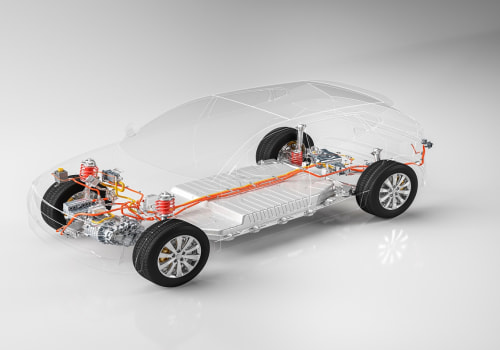As our cities continue to grow and expand, the need for efficient and sustainable transportation becomes increasingly important. The traditional methods of commuting, such as driving alone in a car, are no longer viable options for many people. This is where smart commute comes in - a concept that combines technology, sustainability, and convenience to revolutionize the way we travel.
The Rise of Smart Commute
Smart commute is a term used to describe the use of technology to improve transportation systems and make them more efficient. This includes everything from ride-sharing apps to electric scooters and autonomous vehicles. The goal of smart commute is to reduce traffic congestion, decrease carbon emissions, and provide people with more convenient and affordable ways to get around.
The rise of smart commute can be attributed to several factors. One of the main drivers is the increasing concern for the environment and the need to reduce our carbon footprint. With traditional modes of transportation, such as cars and buses, being major contributors to air pollution, there is a growing demand for greener alternatives.
Another factor is the rapid advancement of technology. With the rise of smartphones and the internet, it has become easier than ever to connect with others and access information. This has paved the way for innovative transportation solutions that utilize technology to improve efficiency and convenience.
The Benefits of Smart Commute
The benefits of smart commute are numerous and far-reaching. One of the most significant advantages is the reduction of traffic congestion. By encouraging people to use alternative modes of transportation, such as public transit or ride-sharing, smart commute helps alleviate traffic on our roads and highways.
Smart commute also has a positive impact on the environment. By reducing the number of cars on the road, it helps decrease carbon emissions and improve air quality. This is especially important in densely populated cities where air pollution is a major concern.
Moreover, smart commute offers convenience and cost savings for commuters. With the rise of ride-sharing apps, people can now easily find a ride to their destination at a fraction of the cost of owning a car. This not only saves money but also reduces the stress and hassle of driving in congested areas.
The Role of Technology
Technology plays a crucial role in making smart commute a reality. One of the most significant advancements in this area is the development of autonomous vehicles. These self-driving cars have the potential to revolutionize transportation by reducing accidents, improving traffic flow, and decreasing travel time.
Another technology that has gained popularity in recent years is electric scooters. These eco-friendly modes of transportation are becoming increasingly common in cities around the world. They offer a convenient and affordable way to travel short distances without contributing to air pollution.
Ride-sharing apps, such as Uber and Lyft, have also played a significant role in promoting smart commute. These apps allow people to share rides with others going in the same direction, reducing the number of cars on the road and easing traffic congestion.
The Challenges Ahead
While smart commute offers many benefits, there are also challenges that need to be addressed. One of the main concerns is data privacy. With the use of technology comes the collection of personal data, which raises questions about how this information will be used and protected.
Another challenge is infrastructure. In order for smart commute to be successful, there needs to be adequate infrastructure in place. This includes things like bike lanes, charging stations for electric vehicles, and designated pick-up and drop-off zones for ride-sharing services.
Moreover, there is also the issue of equity. While smart commute offers many benefits, it is not accessible to everyone. People living in low-income areas may not have access to the necessary technology or infrastructure, making it difficult for them to take advantage of these new transportation options.
The Future of Commuting and Transportation
Despite these challenges, the future of commuting and transportation looks bright with the continued development and implementation of smart commute solutions. As technology continues to advance and become more affordable, we can expect to see even more innovative ways to get around our cities.
Smart commute has the potential to transform our cities into more livable and sustainable places. By reducing traffic congestion, improving air quality, and providing people with convenient and affordable transportation options, it is paving the way for a better future.
In Conclusion
Smart commute is not just a buzzword - it is a movement that is gaining momentum around the world. With its focus on technology, sustainability, and convenience, it offers a promising solution to some of the biggest challenges we face in our cities today. As we continue to embrace smart commute, we can look forward to a future where commuting and transportation are more efficient, eco-friendly, and enjoyable.











Leave Message